
The 1950 United States House of Representatives elections was an election for the United States House of Representatives in 1950 which occurred in the middle of President Harry Truman's second term.

The 1788 South Carolina United States House of Representatives elections were held on November 24 and November 25, 1788 to select five Representatives for two-year terms from the state of South Carolina. The elections resulted in two candidates in support of Washington's administration and three candidates opposed to his policies.

The 1920 Minnesota gubernatorial election took place on November 2, 1920. Republican Party of Minnesota candidate J. A. O. Preus defeated Independent challenger's Henrik Shipstead and the Mayor of St. Paul, Laurence C. Hodgson. Shipstead narrowly lost to Preus in the Republican primary of that year and challenged him in the general, beating the Democratic nominee but coming far short of winning the general.

The 1970 New York gubernatorial election was held on November 3, 1970 to elect the Governor and Lieutenant Governor of New York. Incumbent Republican Governor Nelson Rockefeller defeated the Democratic nominee, former UN Ambassador and Supreme Court Justice Arthur Goldberg by more than ten percentage points. On January 1, 1971, he was sworn in for his fourth term as governor.
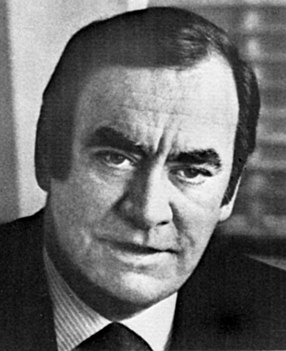
The 1974 New York gubernatorial election was held on November 5, 1974 to elect the Governor and Lieutenant Governor of New York. Incumbent Republican governor Malcolm Wilson was defeated by Democratic Hugh Carey. Carey became the first Democratic Governor of New York since W. Averell Harriman left office in 1958 after suffering defeat from Nelson Rockefeller in the election that same year.

The North Carolina United States Senate election of 1968 was held on 5 November 1968 as part of the nationwide elections to the Senate. The general election was fought between the Democratic incumbent Sam Ervin and the Republican nominee Robert Somers. Ervin won re-election to a third full term, with over 60% of the vote.

The 1970 United States Senate election in New York was held on November 3, 1970. Incumbent Republican U.S. Senator Charles Goodell, who had been appointed to the seat by Governor Nelson Rockefeller in 1968 following the assassination of Sen. Robert F. Kennedy, sought a full term. Goodell was challenged by Democrat Richard Ottinger and Conservative James Buckley. Buckley prevailed.
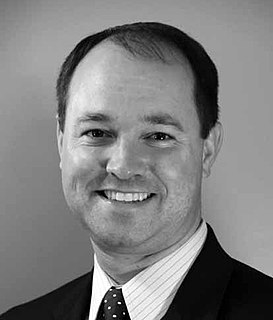
The 2010 United States House of Representatives special election for Indiana's Third congressional district occurred on November 2, 2010 to elect the successor to Mark Souder (R) who resigned upon admitting to an extramarital affair. This election coincided with the regularly scheduled election.

The 1974 Massachusetts gubernatorial election was held on November 5, 1974. Michael Dukakis was elected to a four-year term, from January 4, 1975 until January 4, 1979. He defeated incumbent Governor of Massachusetts Francis W. Sargent in the general election.
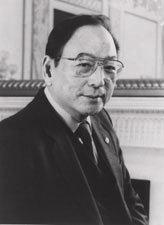
The 1988 United States Senate election in Hawaii took place on November 8, 1988. Incumbent Democratic U.S. Senator Spark Matsunaga won re-election to a third term.

The 1934 United States Senate election in Minnesota took place on November 6, 1934. Incumbent Farmer-Labor U.S. Senator Henrik Shipstead defeated former State Senator Nathaniel J. Holmberg of the Republican Party of Minnesota and U.S. Representative Einar Hoidale of the Minnesota Democratic Party to win a third term.
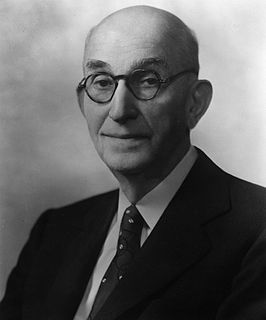
The 1956 United States Senate election in Arizona took place on November 6, 1956. Incumbent Democratic U.S. Senator Carl Hayden ran for reelection to a sixth term, defeating Republican nominee Attorney General of Arizona Ross F. Jones in the general election.

The 1950 United States Senate elections in Arizona took place on November 7, 1950. Incumbent Democratic U.S. Senator Carl Hayden ran for reelection to a fifth term, defeating Republican nominee Bruce Brockett in the general election. Brockett was formerly the Republican nominee for governor in both 1946 and 1948.

The 1974 United States Senate election in New York was held on November 5, 1974. Incumbent Republican U.S. Senator Jacob K. Javits won against Democratic challenger Ramsey Clark in a three way election.

Gubernatorial elections were held in Ohio on November 2, 1982. Dick Celeste of the Democratic Party was elected with 61% of the vote.

The 1944 Arizona gubernatorial election took place on November 7, 1944. Incumbent Governor Sidney Preston Osborn ran for reelection, and easily won the Democratic primary, with only token opposition as former Governor Robert Taylor Jones declined to challenge Osborn to a rematch following two losses, in 1940 and 1942.

The 1950 Arizona gubernatorial election took place on November 7, 1950. Incumbent Governor Dan Edward Garvey, who originally ascended to the office of Governor following the death of Sidney Preston Osborn and was later elected to a full term, lost the Democratic primary to state Auditor Ana Frohmiller. Frohmiller would become the first woman to be nominated by any party for governor in Arizona.
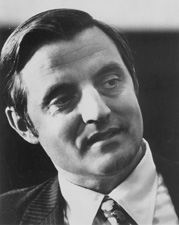
The 1966 United States Senate election in Minnesota took place on November 8, 1966. Incumbent Democratic U.S. Senator Walter Mondale, who had originally been appointed in 1964 to replace Hubert Humphrey after Humphrey was elected Vice President of the United States, defeated Republican challenger Robert A. Forsythe, to win a full term.

The 1970 United States Senate election in Minnesota took place on November 3, 1970. Incumbent Democratic U.S. Senator Eugene McCarthy opted not to seek reelection. Former Democratic U.S. Senator, Vice President and 1968 presidential nominee Hubert Humphrey defeated Republican U.S. Representative Clark MacGregor.

The 1972 United States Senate election in Minnesota took place on November 7, 1972. Incumbent Democratic U.S. Senator Walter Mondale won re-election.





















